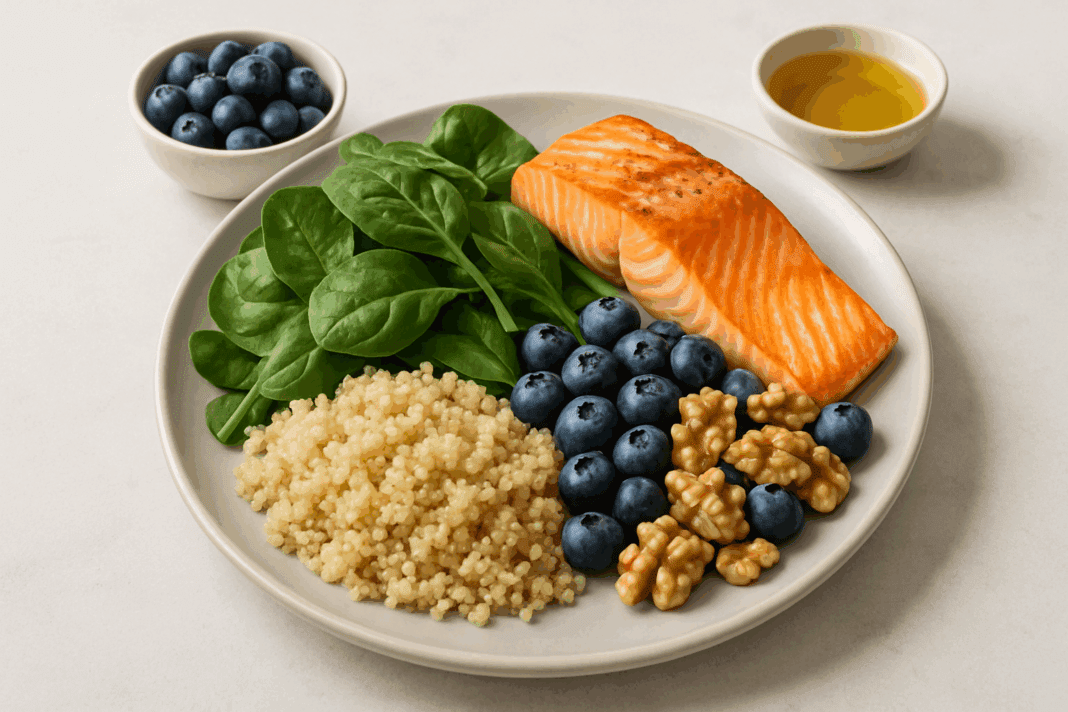Mental wellness is a multifaceted aspect of health, and while therapy and medication often form the cornerstone of treatment for anxiety and depression, emerging research continues to highlight the profound role nutrition can play in mental health. The connection between what we eat and how we feel is more than anecdotal; it’s a growing field of scientific exploration. From regulating neurotransmitters to supporting brain function through essential vitamins and minerals, a balanced diet for anxiety and depression offers promising avenues for those seeking holistic support. This article delves deeply into how the best foods for anxiety and depression can help foster emotional resilience and cognitive clarity, without relying solely on pharmacological interventions.
You may also like: How to Stop Emotional Eating and Regain Control: Mindful Nutrition Strategies That Support a Healthier Lifestyle
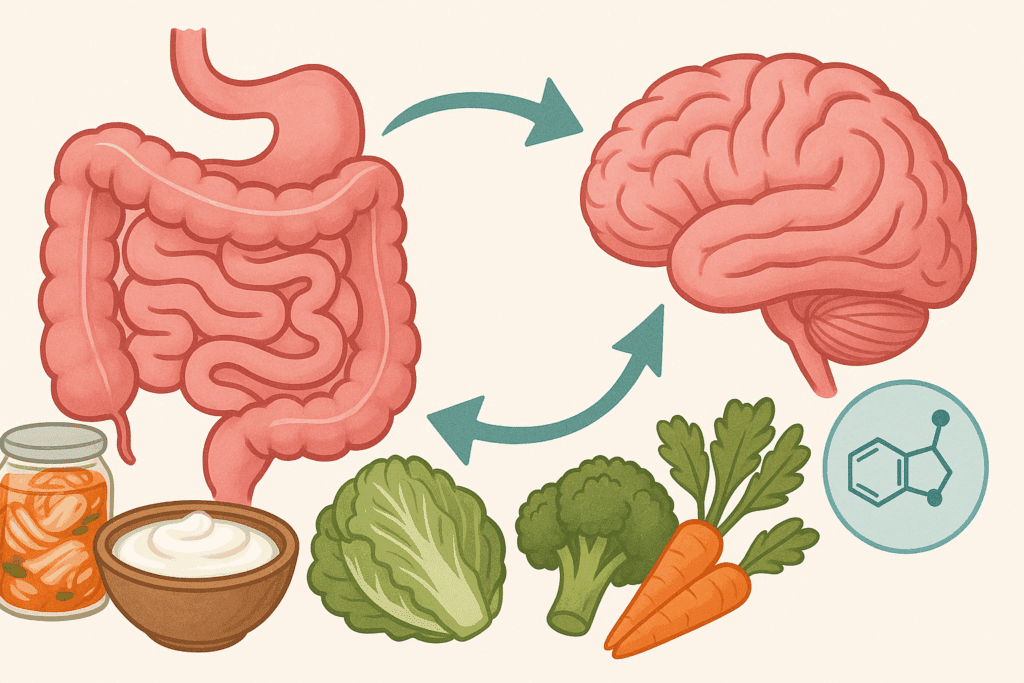
Understanding the Gut-Brain Connection
One of the most significant breakthroughs in recent nutritional psychiatry is the understanding of the gut-brain axis. This complex communication network between the gastrointestinal tract and the central nervous system suggests that gut health may play a pivotal role in mood regulation. The gut houses trillions of bacteria, known as the gut microbiota, which are instrumental in the production of neurotransmitters such as serotonin, a chemical often dubbed the “feel-good” hormone. In fact, nearly 90% of the body’s serotonin is produced in the gut. A diet rich in prebiotics and probiotics—found in fermented foods like yogurt, kefir, kimchi, and fiber-rich vegetables—can enhance gut health and, by extension, contribute to a reduction in symptoms of anxiety and depression.
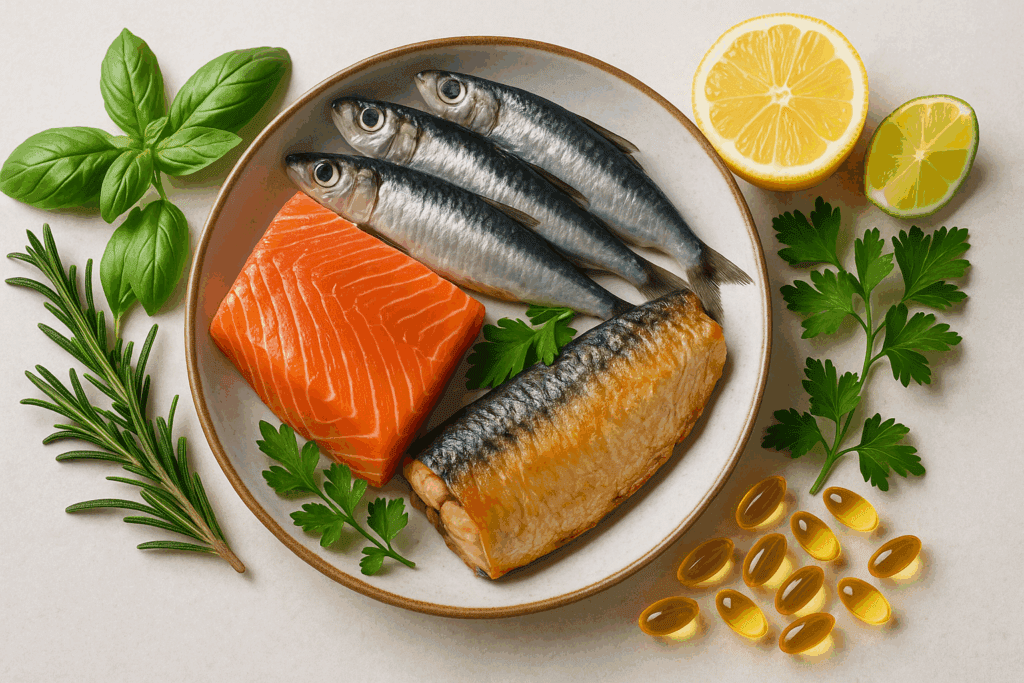
The Role of Omega-3 Fatty Acids in Emotional Health
Fatty fish like salmon, sardines, and mackerel are rich in omega-3 fatty acids, which have been extensively studied for their anti-inflammatory properties and potential mental health benefits. Omega-3s, particularly EPA and DHA, are vital components of brain cell membranes and play a role in modulating neurotransmitter pathways. Research has shown that individuals with diets high in omega-3s often report lower levels of depressive symptoms. This makes these fatty acids essential components of a diet to help anxiety and depression. Incorporating fish at least twice a week or choosing high-quality fish oil supplements may provide additional mental health benefits, particularly for those experiencing chronic stress or emotional fatigue.
Complex Carbohydrates and Stable Mood Regulation
Carbohydrates often get a bad rap in dietary conversations, but not all carbs are created equal. Complex carbohydrates, found in whole grains like oats, quinoa, brown rice, and legumes, release glucose slowly into the bloodstream, promoting stable energy levels and minimizing mood swings. They also contribute to the production of serotonin. A steady supply of this neurotransmitter is essential for managing anxiety and depression. Choosing complex carbs over refined sugars and processed foods is not only beneficial for physical health but also constitutes part of the best diet for anxiety.
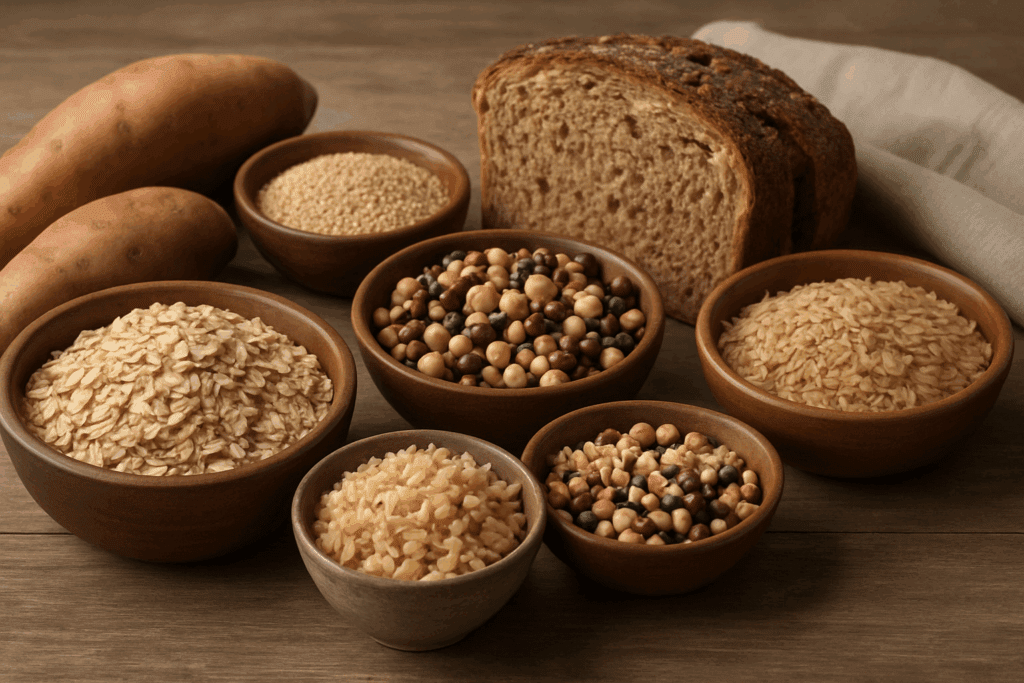
Leafy Greens and Nutrient Density
Dark, leafy greens like spinach, kale, Swiss chard, and arugula are nutrient powerhouses packed with folate, magnesium, and iron—all of which play crucial roles in brain function and emotional regulation. Folate, in particular, is involved in the synthesis of neurotransmitters such as dopamine and serotonin. Low levels of folate have been linked to an increased risk of depression. Magnesium helps regulate the body’s stress response and is frequently depleted in individuals under chronic stress. These nutrient-dense vegetables are examples of foods that help with depression and anxiety by providing foundational support to the brain and nervous system.
The Power of Antioxidants in Brain Protection
Oxidative stress is a condition marked by excessive free radicals in the body and has been implicated in the pathophysiology of both depression and anxiety. Antioxidants neutralize these free radicals and protect brain cells from damage. Berries, such as blueberries, strawberries, and blackberries, are rich in antioxidants like flavonoids and vitamin C. These fruits not only help reduce inflammation but also support cognitive functions such as memory and mood regulation. Including antioxidant-rich foods for depression in a daily diet may serve as a protective factor against the mental wear and tear associated with prolonged emotional distress.
Proteins and Amino Acids for Neurotransmitter Support
Proteins are the building blocks of neurotransmitters, and amino acids derived from protein-rich foods are crucial for maintaining mental health. Tryptophan, for instance, is a precursor to serotonin and is found in foods like turkey, eggs, dairy, and legumes. Tyrosine, another important amino acid found in chicken, soy products, and seeds, is essential for the production of dopamine. Ensuring adequate protein intake through a variety of sources supports neurotransmitter balance and cognitive function, making protein-rich foods vital in a diet to help depression and anxiety.
The Importance of Hydration and Brain Function
Although often overlooked, proper hydration is a cornerstone of mental clarity and emotional stability. Dehydration can lead to fatigue, irritability, and decreased concentration, all of which can exacerbate symptoms of anxiety and depression. Water is essential for the transport of nutrients and the removal of toxins from the body. Herbal teas such as chamomile and green tea not only contribute to fluid intake but also possess calming properties that may help reduce anxiety. Maintaining consistent hydration levels is a simple yet impactful way to support mental wellness naturally.
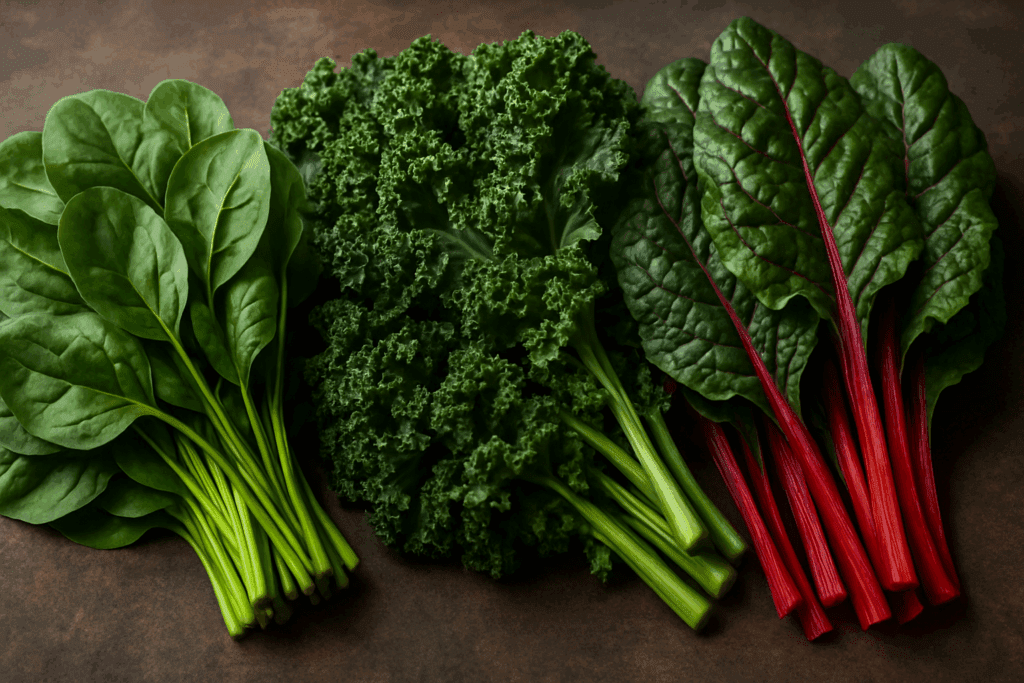
Caffeine, Sugar, and Mood Dysregulation
While moderate caffeine intake can offer a temporary boost in alertness, excessive consumption may heighten symptoms of anxiety, including restlessness and insomnia. Similarly, diets high in added sugars can lead to rapid fluctuations in blood glucose levels, contributing to mood instability. For individuals managing mood disorders, reducing reliance on stimulants and added sugars is an important part of nutrition to help depression. Instead of sugary snacks or energy drinks, opting for nutrient-dense snacks like nuts, fruit, or yogurt can offer sustained energy and better emotional equilibrium.
Herbs and Natural Supplements for Emotional Balance
Certain herbs and natural supplements have shown promise in supporting mental health, especially when used as part of a broader diet and lifestyle approach. For example, adaptogens like ashwagandha and rhodiola are known for their stress-modulating effects. St. John’s Wort has been studied for its potential role in alleviating mild to moderate depression, though it may interact with other medications and should be used with caution. Omega-3 supplements, B-complex vitamins, and magnesium glycinate are often included among foods and supplements for depression due to their evidence-based benefits. Integrating these into a comprehensive diet for depression may offer additional support alongside medical care.
Dietary Patterns That Promote Mental Wellness
Rather than focusing solely on individual nutrients or foods, many experts recommend adopting overall dietary patterns that support emotional health. The Mediterranean diet, rich in vegetables, fruits, whole grains, fish, and healthy fats like olive oil, is one of the most well-researched eating plans for mental health. This diet has been associated with lower risks of depression and cognitive decline, likely due to its anti-inflammatory and nutrient-rich profile. Similarly, plant-forward diets that emphasize a variety of whole, unprocessed foods can create a solid foundation for mental and physical health. These patterns provide many of the foods that fight depression and anxiety, reinforcing the importance of consistency and variety in eating habits.
Foods That Fight Fatigue and Depression Together
Fatigue is a common and often debilitating symptom of depression. Addressing energy levels through diet can significantly improve quality of life. Iron-rich foods such as lean red meat, lentils, and fortified cereals support oxygen transport in the blood, which helps combat fatigue. B vitamins, particularly B12 and folate, are involved in energy production at the cellular level. Complex carbohydrates and healthy fats also provide sustained energy without the crashes associated with sugary snacks. Incorporating these into a balanced diet for anxiety and depression can provide both emotional and physical resilience.
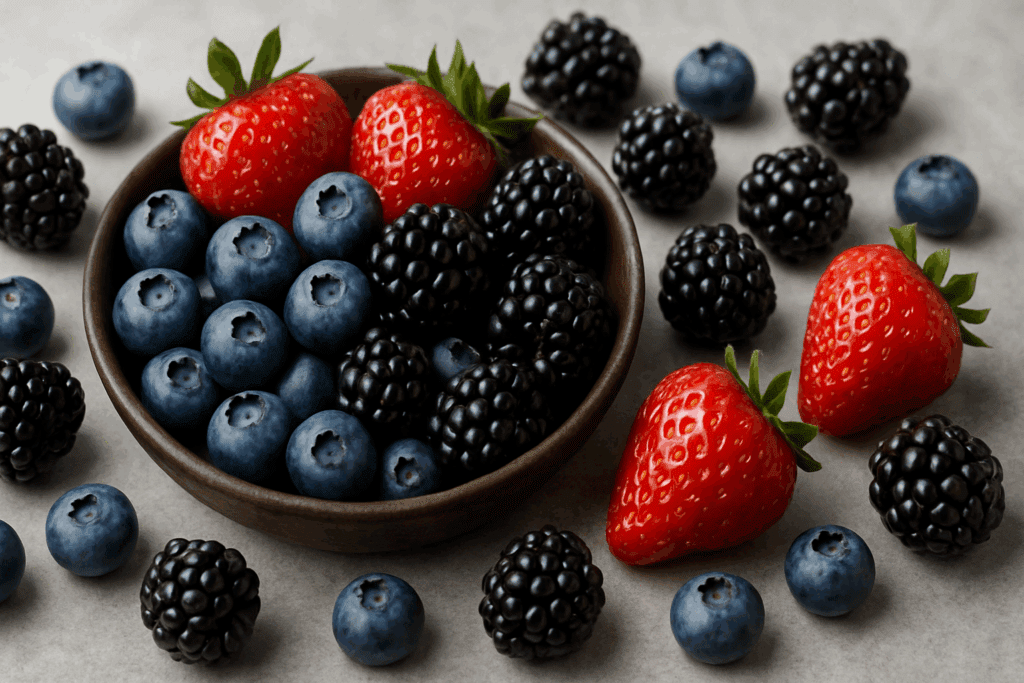
Practical Tips for Building a Mental Health-Supportive Diet
Adopting a new way of eating can feel overwhelming, but small, intentional changes can lead to lasting improvements in mental wellness. Start by adding, rather than subtracting: include a serving of leafy greens in your daily meals, choose whole grain bread over white, or swap soda for sparkling water. Planning meals ahead of time, keeping healthy snacks on hand, and staying mindful of portion sizes are practical strategies that support long-term success. Over time, these changes can evolve into a sustainable diet to help with anxiety and depression, reinforcing positive habits and empowering individuals in their wellness journey.
The Role of Cultural and Personal Preferences
Food is deeply personal and cultural, and dietary changes must be adapted to suit individual preferences and traditions. While salmon may be a recommended source of omega-3s, someone who doesn’t eat fish might prefer walnuts or flaxseeds. Similarly, fermented foods like kimchi or miso might feel unfamiliar but can be replaced with yogurt or sauerkraut. Flexibility and personalization are key when building a diet to help with depression and anxiety. By respecting individual choices and cultural backgrounds, dietary interventions are more likely to be sustainable and effective over time.

How Stress Affects Nutrient Absorption and Cravings
Chronic stress can impact how the body absorbs and utilizes nutrients. High levels of cortisol, the body’s primary stress hormone, can reduce digestive efficiency and impair the absorption of essential vitamins and minerals. Moreover, stress often drives cravings for high-sugar, high-fat foods, which may provide temporary comfort but lead to long-term mood instability. Recognizing these physiological responses helps individuals make informed choices about their eating habits. Incorporating foods that reduce anxiety and depression while being mindful of stress-induced cravings can support greater emotional balance.
Bridging Nutrition with Professional Mental Health Care
While nutrition offers powerful tools for mental health support, it is not a replacement for professional care. Therapy, medication, and other evidence-based treatments are often necessary, especially for moderate to severe cases of anxiety and depression. However, integrating dietary changes alongside medical support creates a more comprehensive treatment plan. Discussing dietary interventions with a healthcare provider or registered dietitian ensures that changes are safe, individualized, and aligned with other treatment modalities. In this way, foods good for depression and anxiety become part of a collaborative approach to healing.
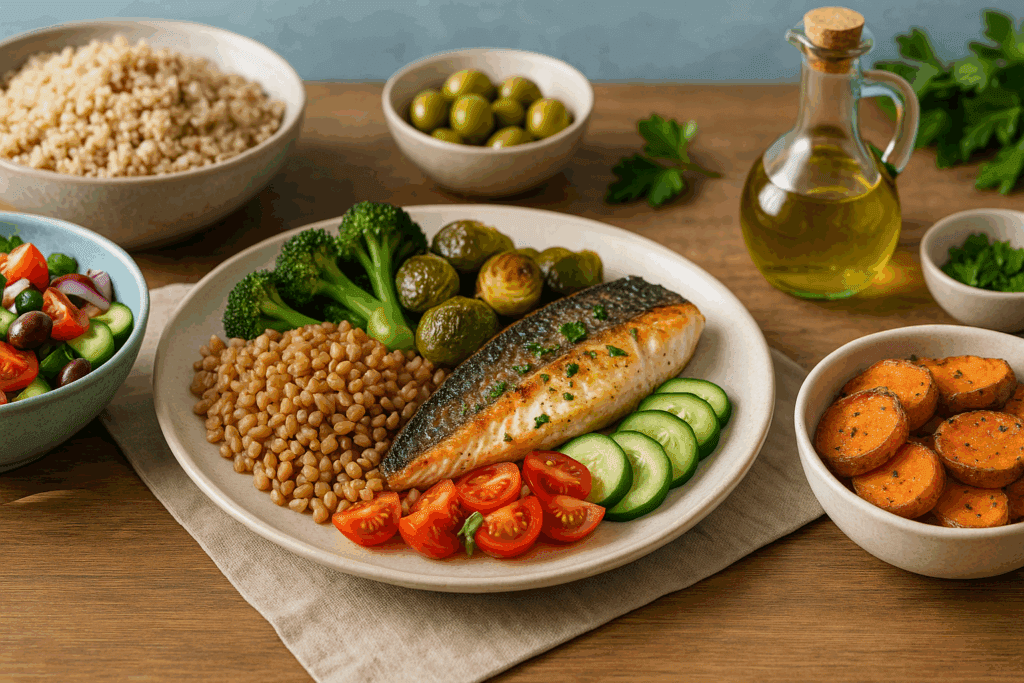
Rethinking Food as Daily Preventive Care
The modern healthcare model often emphasizes treatment over prevention, yet food is one of the most accessible and powerful forms of preventive care. A well-constructed diet for anxiety and depression doesn’t require expensive ingredients or complex recipes. Instead, it calls for consistency, variety, and mindfulness. Eating for mental health means recognizing the value of every bite as a potential contributor to emotional well-being. Whether it’s a handful of nuts, a bowl of berries, or a comforting lentil soup, daily food choices can help nourish not only the body but also the mind.
Frequently Asked Questions: Diet and Nutrition for Anxiety and Depression
What are some overlooked foods that help with depression and anxiety beyond the usual recommendations?
While many people know about omega-3-rich fish and leafy greens, lesser-known foods that help with depression and anxiety include pumpkin seeds, seaweed, and tempeh. Pumpkin seeds are high in zinc and magnesium, minerals that support neurotransmitter activity and reduce inflammation. Seaweed offers iodine and tyrosine, essential for healthy thyroid function, which can affect mood stability. Tempeh, a fermented soy product, provides probiotics and protein, supporting gut health and neurotransmitter balance. Including these underrated options as part of a comprehensive diet for anxiety and depression can expand your nutrient intake and improve overall mental resilience.
Can certain eating habits enhance the effectiveness of a diet to help anxiety and depression?
Yes, the timing and consistency of meals can significantly influence how well a diet supports mental health. Irregular eating patterns can cause blood sugar fluctuations, leading to mood swings, irritability, and fatigue. Eating balanced meals at regular intervals helps regulate energy and stabilize mood, making it easier for the brain to utilize nutrients from foods that reduce anxiety and depression. Incorporating mindfulness practices at mealtime—such as slowing down, chewing thoroughly, and eliminating distractions—can also improve digestion and absorption. These simple behavioral shifts work synergistically with a well-planned diet for depression to promote emotional and cognitive balance.
Are there specific foods that fight fatigue and depression simultaneously?
Absolutely. Fatigue and depression often coexist, and several nutrient-dense foods offer benefits for both. Lentils, for example, are high in iron, folate, and complex carbohydrates, providing both energy and mood-boosting support. Bananas contain natural sugars, B6, and fiber, delivering a quick energy lift without the crash. Eggs provide high-quality protein and choline, which supports brain function and energy metabolism. These foods are not only beneficial for combating fatigue but also qualify among the best foods for depression because they stabilize blood sugar and enhance neurotransmitter function. Integrating them into your daily routine can help manage both physical tiredness and emotional low points.
How does nutrition to help depression differ from general healthy eating guidelines?
While there is some overlap, nutrition to help depression specifically emphasizes nutrients that influence brain chemistry. For instance, folate, B12, and omega-3s play crucial roles in neurotransmitter synthesis, whereas general dietary guidelines may not prioritize these nutrients. Furthermore, a diet for anxiety and depression tends to minimize inflammatory foods like refined sugars and processed meats, which are not always highlighted in standard health advice. It also focuses more on maintaining stable blood glucose levels to prevent mood crashes. So while general healthy eating supports overall wellness, nutrition designed to target mood disorders is more strategically tailored to cognitive and emotional health.
Is it possible to support mental wellness through diet without using supplements?
For many people, it is entirely possible to obtain mood-supportive nutrients through whole foods alone, especially when following a diverse and intentional eating plan. Foods good for depression, such as legumes, seeds, fatty fish, whole grains, and leafy greens, can collectively provide the body with the B vitamins, magnesium, and omega-3s it needs. However, individuals with malabsorption issues, dietary restrictions, or specific deficiencies may benefit from targeted supplementation. Even without supplements, the best diet for anxiety can offer substantial support, particularly when consistently followed. Regular monitoring by a healthcare provider can help determine whether additional support is necessary.
How can cultural preferences be honored while following a diet to help depression?
Cultural food traditions can and should be preserved while adapting eating habits for better mental health. For example, someone following a traditional Indian diet may include turmeric-spiced lentils and fermented foods like dosa to support gut health. A Latin American approach could incorporate black beans, avocado, and plantains as part of foods to eat to help with depression. The key is to identify culturally relevant ingredients that align with nutritional goals. This approach not only increases adherence to a diet for depression but also adds emotional satisfaction, reinforcing the connection between nourishment and cultural identity.
Are there psychological benefits to choosing the best foods for anxiety intentionally?
Yes, making thoughtful food choices can instill a greater sense of control, which is often diminished during episodes of anxiety or depression. This act of agency—choosing foods that help with depression and anxiety—can reinforce a positive feedback loop: better food choices lead to better moods, which in turn strengthen the motivation to continue. Moreover, engaging in food preparation can serve as a form of behavioral activation, a therapeutic strategy used to manage depression by encouraging participation in meaningful activities. Over time, these small acts of self-care compound into a more empowered and stable mindset. Thus, the psychological effect of dietary choices is just as important as the physiological.
How do foods and supplements for depression interact with medications?
While food generally enhances wellness, certain supplements and even foods can interact with psychiatric medications. For instance, St. John’s Wort—a commonly used herbal supplement in diets for depression—can interfere with antidepressants and reduce their effectiveness. Similarly, high doses of folic acid might alter the metabolism of some medications. Even grapefruit juice can affect how drugs are absorbed and processed. It is essential for anyone incorporating foods and supplements for depression to consult with a healthcare provider or pharmacist to avoid unintended interactions. Informed integration ensures that nutritional interventions complement rather than complicate medical treatment.
What are signs that your current diet for anxiety may not be working effectively?
If mood instability, persistent fatigue, irritability, or cognitive fog continue despite dietary changes, it may indicate that your diet for anxiety needs reassessment. Sometimes, nutrient imbalances are subtle and require lab testing to uncover, such as low B12 or iron levels. It is also possible that external stressors or sleep issues are overshadowing the benefits of foods that help with depression. Tracking how you feel physically and emotionally after meals can offer insights into how your diet is influencing your mental state. When in doubt, consulting a registered dietitian who specializes in mental health can help fine-tune your approach.
Are there emerging trends in the best diet for anxiety and depression?
Recent advancements point toward personalized nutrition based on genetic, microbiome, and metabolic profiling. This approach aims to tailor a diet to help anxiety and depression more precisely by identifying individual nutrient needs and sensitivities. There is also growing interest in psychobiotics—specific strains of probiotics that may influence mood and cognition by acting on the gut-brain axis. Additionally, interest is growing around intermittent fasting’s potential influence on neuroplasticity and stress resilience. These emerging trends suggest that the future of food for depression and anxiety may become increasingly customized, offering more targeted and effective solutions than generalized dietary advice.
Reflecting on the Best Diet for Anxiety and Depression: A Holistic Path to Mental Wellness
As research continues to underscore the connection between nutrition and mental health, it becomes increasingly clear that the best foods for anxiety and depression are those that nourish the whole person. From brain-boosting omega-3s to gut-friendly probiotics, the components of a balanced diet can powerfully influence emotional stability, energy levels, and cognitive clarity. By prioritizing whole foods and minimizing processed ingredients, individuals can create dietary patterns that both support and sustain mental well-being. This doesn’t mean abandoning medical care or therapy—rather, it means adding another layer of support that is both natural and empowering. Whether you’re starting small with a single serving of leafy greens or adopting a broader Mediterranean-style eating pattern, every step counts. In embracing foods that help with depression and anxiety, we also reclaim a sense of agency over our health, using everyday choices to build a foundation for lifelong wellness.
Was this article helpful? Don’t let it stop with you. Share it right now with someone who needs to see it—whether it’s a friend, a colleague, or your whole network. And if staying ahead on this topic matters to you, subscribe to this publication for the most up-to-date information. You’ll get the latest insights delivered straight to you—no searching, no missing out.
Further Reading:
Nutritional strategies to ease anxiety

